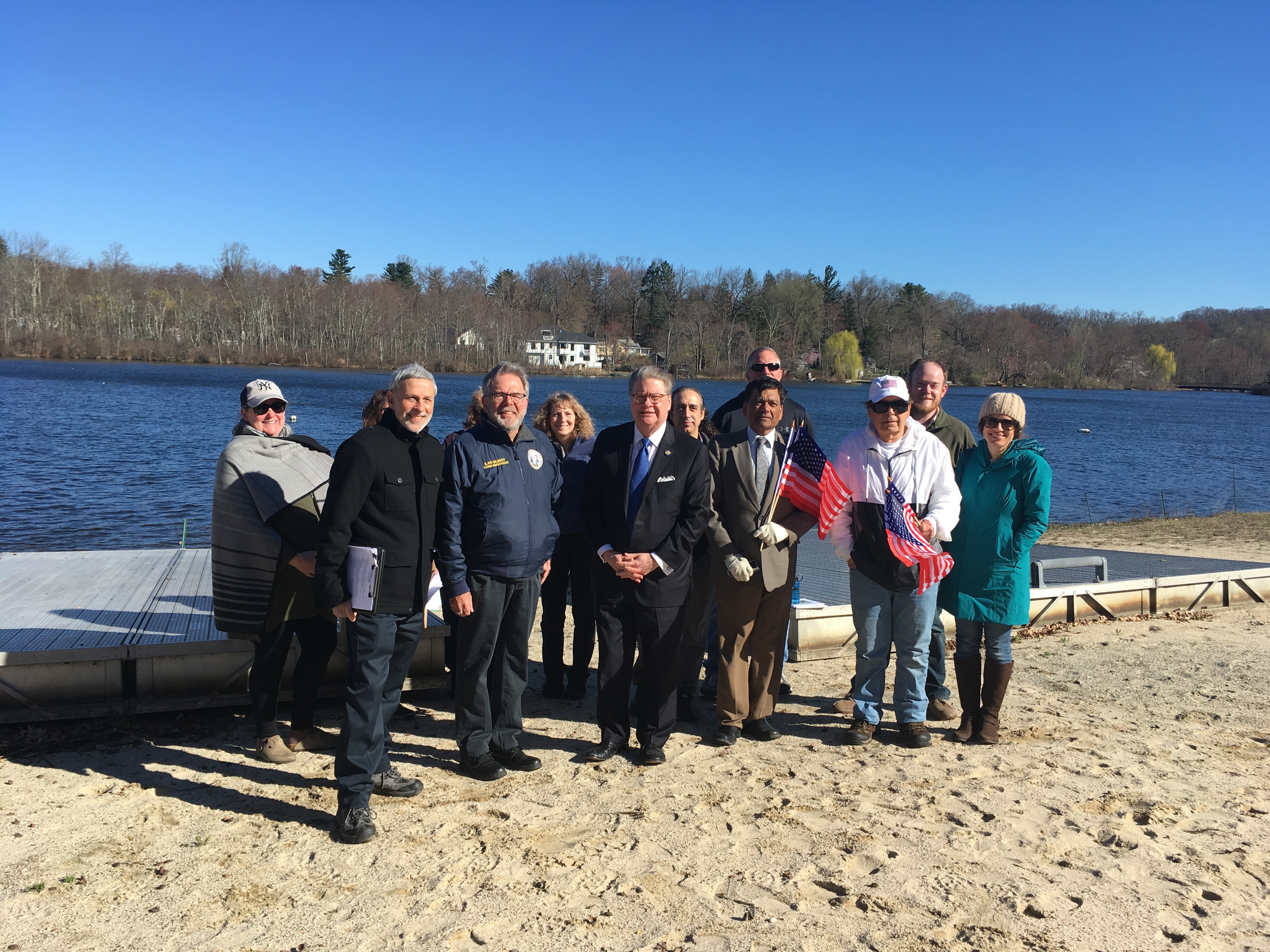Two Beaches on Mohegan Lake Remain Closed for Swimming

Two beaches on Mohegan Lake remain closed for swimming a month after being given a thumbs down by the Westchester County Health Department.
Ken Belfer, president of the Mohegan Lake Improvement District, informed the Yorktown Town Board last week Mohegan Colony and Mohegan Beach Park, two of the five active beach associations, have been off limit to swimmers since July 17 due to a high concentration of blue green algae that has been a long-standing nuisance of the 103-acre natural waterway.
“It has a deterrent effect on all beaches in the lake,” Belfer said. “If the lake looks like pea soup and you see algae floating don’t swim. People are using it for boating.”
In late April, Mohegan Lake was the recipient of a state funded pilot project to treat the blue green algae. The two-day treatment of Alum (aluminum sulfate), which members of the Mohegan Lake Improvement District felt could be a “game-changer” in improving the water quality during the summer season, would have cost about $150,000.
Mohegan Lake was treated with Alum in 2002 and the water quality that summer “was the best we had in decades,” according to Belfer, who was hopeful the lake would see similar results this year. However, that didn’t turn out to be the case.
“If it made it better it was marginal,” Belfer said. “It’s very disappointing. The lake changes all the time. It can change with weather conditions.”
The pilot project includes two years of study of the impacts of all aspects of the lake ecology. Belfer said it’s just a “Bandaid” while the Improvement District searches for a long-term solution.
“We see this pilot project as just the beginning,” Belfer said. “Our ongoing efforts include water quality monitoring, aeration of the lake, weed harvesting and removal of invasive aquatic species.”
The Health Department was scheduled to return early this week to take samples of the lake. Those samples are then sent to a state laboratory in Albany where results are usually available in about two days.
“I’m not optimistic,” Belfer said. “Just because there’s algae doesn’t mean the toxins are high. I’ve never heard of anyone allergic to this. The only negative effect is if anyone ingests it.”

Rick has more than 40 years’ experience covering local news in Westchester and Putnam counties, running the gamut from politics and crime to sports and human interest. He has been an editor at Examiner Media since 2012. Read more from Rick’s editor-author bio here. Read Rick’s work here: https://www.theexaminernews.com/author/pezzullo_rick-writer/
